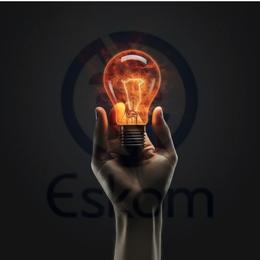Content created by AI
South Africa's Power Paradox: Mbalula's Electricity Access Claims Dimmed by Persisting Load Shedding
South Africa's journey towards ensuring universal electricity access has come under scrutiny as ANC secretary-general Fikile Mbalula's recent claims of success are being eclipsed by the stark reality of ongoing load shedding across the nation. Mbalula emphasized that the government has ramped up the percentage of households with electricity from 58% in 1996 to 94.7% in 2022, positioning the ANC as a driving force behind this significant leap in development. However, what should be a testament to the party's governance is being thrown into question by the persistence of a power crisis that has induced stage 2 rolling blackouts countrywide.
The contradiction surfaces in an atmosphere where public disappointment is palpable. With the country having recently been at the mercy of stage 6 load shedding, the rising rates of electrification have become overshadowed by the reliability and consistency of power supply. Users on social media were quick to jest at the government's expense, pointing out that a vast majority now have 'access to load shedding' instead of stable electricity. The critique extends to the government's investment and upkeep of the power infrastructure, with netizens noting the shortfall in maintenance, the construction of newer, more reliable facilities, and the modernization of the transmission grid.
These shortcomings have persisted despite Mbalula's assurance last month that the ANC was aiming to rid the country of load shedding by year's end. In an interview with eNCA, Mbalula acknowledged that load shedding was South Africa's 'Achilles’ heel,' affecting not only the socio-economic welfare of individuals but also the broader macroeconomic landscape through company shutdowns and job losses.
The aspirations to fix the economy by resolving the power supply crisis now hang in the balance as the deadline looms. Promises of a load shedding-free country are met with increasing skepticism, and Mbalula must now contend with the public's expectation for a 'reasonable explanation' should the crisis persist.
This ongoing dilemma reflects deeper systemic issues within South Africa's power sector, particularly at Eskom, the state-owned power company beleaguered with challenges ranging from aging infrastructure, management issues, to allegations of corruption. The broader question that lingers is whether the government can convert its electrification achievements into tangible improvements in the stability and availability of power for its citizens, or whether load shedding will remain a quagmire, stubbornly obstructing the country's development progress.
Solutions for South Africa's power sector require not just political will but also astute and competent management, substantial financial investment, and potentially diversification into alternative energy sources. Whether Mbalula's pledges will light up the homes of South Africans or whether they will remain in the dark, figuratively and literally, as they brace for an uncertain power supply future, will be a testament to the ANC-led government's capacity to resolve one of the nation's most pressing crises.





